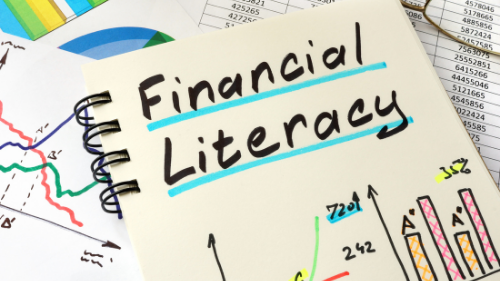“Go to school and work hard to get good grades so that when you graduate you’ll get a good job and be successful, and hence be able to take care of yourself and your family!”
Were you told that when you were growing up? And did you believe that success was more or less guaranteed like I did?
While getting a good education is indeed a great achievement, it doesn’t guarantee you financial success. At least not the financial success that I thought was implied in the above statement. Many people went to university to get a good education, did well, then worked hard throughout their working years and yet died financially poor.
And this is not about not earning decent income because a lot of people make good income but cannot afford to save even a few bucks every month. They live paycheck to paycheck and should they lose their jobs for a month or two, they may have to file for bankruptcy.
What about you, would you be able to care for yourself and your family if you lost income for a few months? If your answer is yes, congratulations; you’re in the minority. Most people would have to go into debt to care for themselves and family. Oftentimes this is a result of bad financial management and poor financial literacy skills.
This is why financial literacy is one of the greatest legacy you can leave your children. With financial literacy skills they will know how to manage their money and make sound financial decisions. They will also know how to make money work for them instead of working for money all their lives and still die poor.
Nowadays things are even more concerning because so many graduates are leaving university with a masters degree, but are unable to land a decent job. Moreover, most are leaving with huge debt before they even land a job….in the name of student loans. And the fact that the interest grace period for student loans in provinces like Ontario ends upon completion of study, interest starts to accrue soon after graduation. When students are taught financial literacy, they will know the following:
- How to make money from multiple sources of income
- How to manage money effectively
- How to create a budget and spend wisely
- How to invest money so it grows and increase wealth
- How to avoid bad debt and the difference between good and bad debt
- How to use OPM (Other People’s Money) to increase wealth
- How to maintain great credit scores
- How to negotiate for better interest rates
- How use insurance to improve lifestyle and build wealth
- How to be an entrepreneur
- How to file tax returns and save on taxes
- How to use credit card effectively
- The difference between an asset and a liability
- How to save for retirement and children’s education
- The effective way to buy a home and a car
- How to achieve financial independence sooner than later
These are certainly not the only financial literacy skills that your children should know. But these are definitely great skills that will help them to achieve financial success if they apply them to their lives.
The world has changed considerably over the past few decades, and it continues to change dramatically year after year. These days many children are not even aspiring to go to college or university anymore, because of the reduction in jobs available. But not going to college or university shouldn’t prevent them from achieving financial success. There are many vocations that can lead to great success, especially when coupled with financial literacy skills.
Plus there are children who just aspire to own their own businesses or have a traditional profession and still own a business.Some just want to learn about investment strategies and become professional investors.
However, the school system doesn’t teach financial literacy and it definitely doesn’t provide opportunities or have training systems in place to encourage students to pursue entrepreneurship. This is why if you teach your children financial literacy skills it is one of the greatest legacy that you will leave with them.
Financial literacy skills will not only change their lives, they will pay it forward and give that same legacy to their children and grandchildren, thus changing the trajectory for the next generation and for generations to come.

